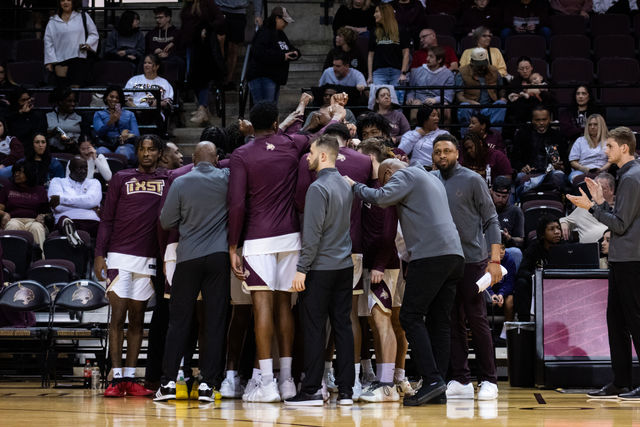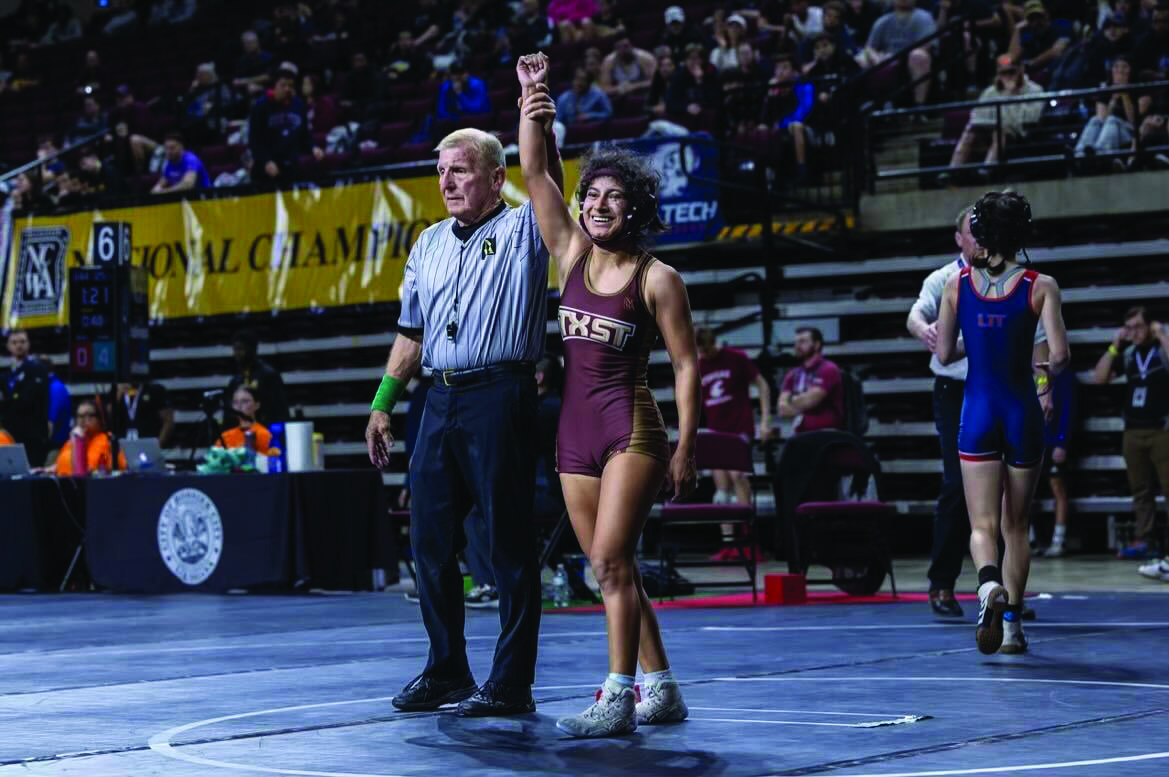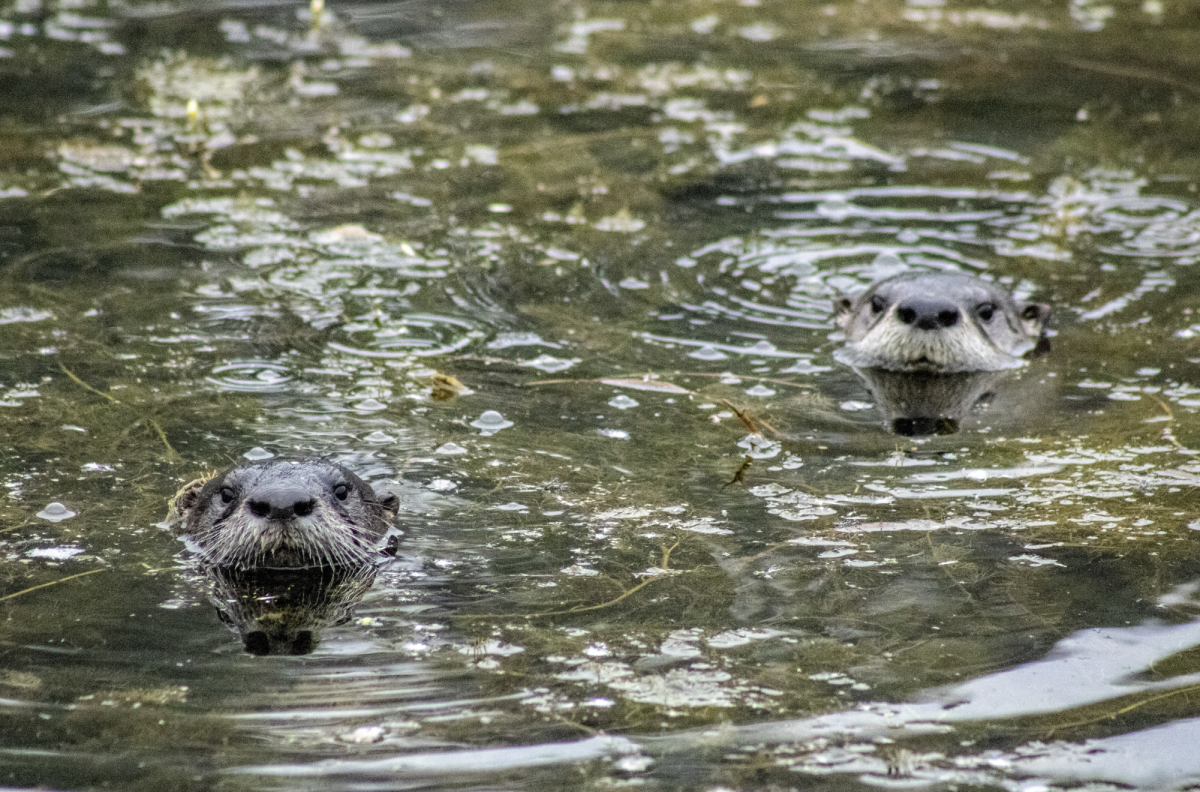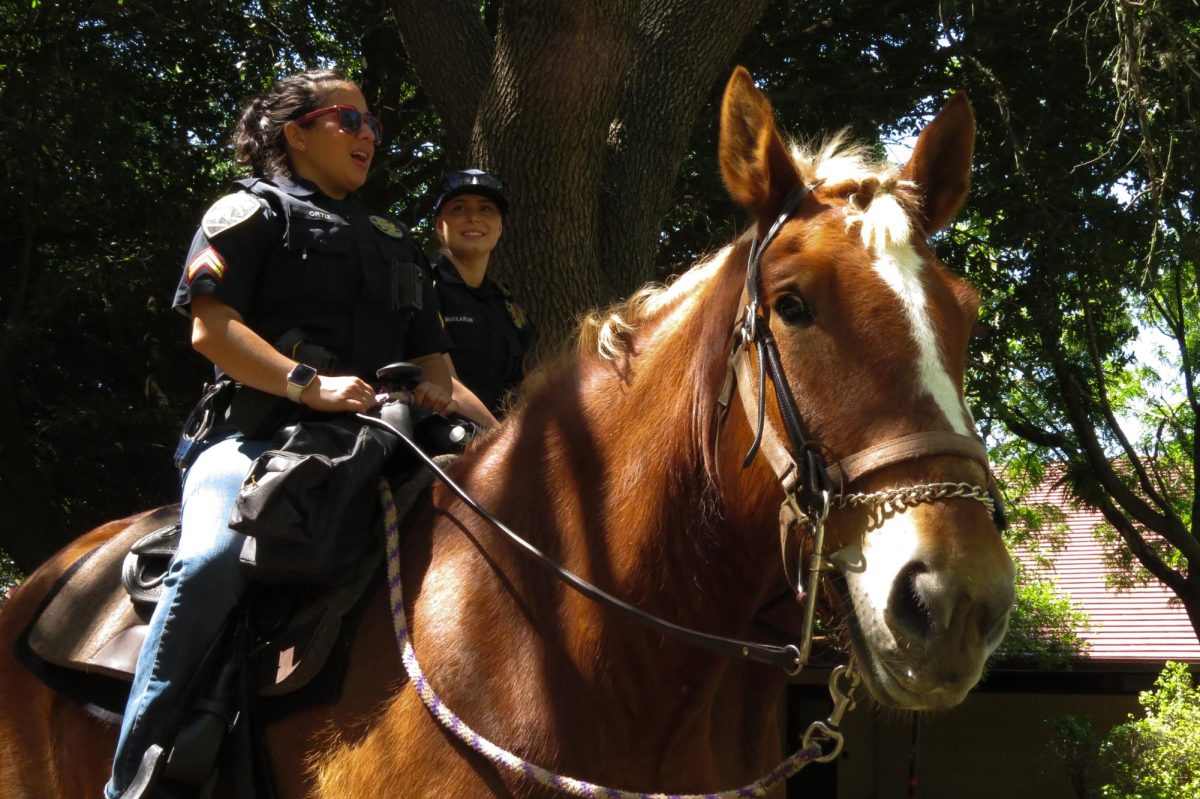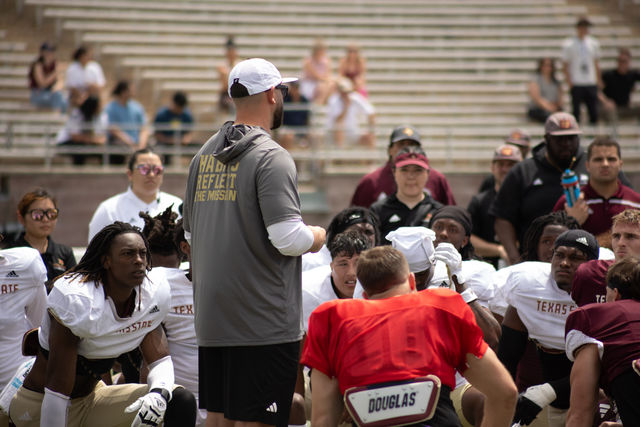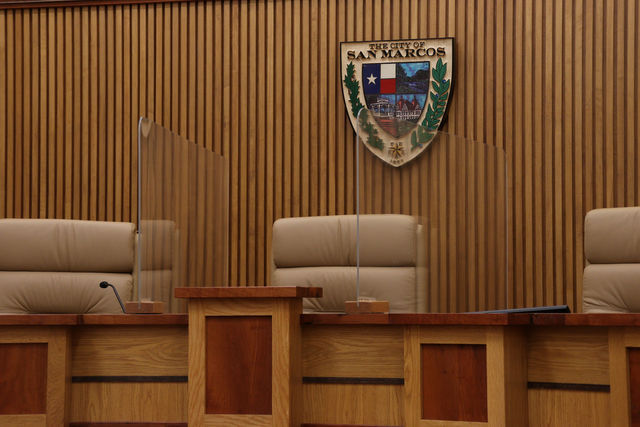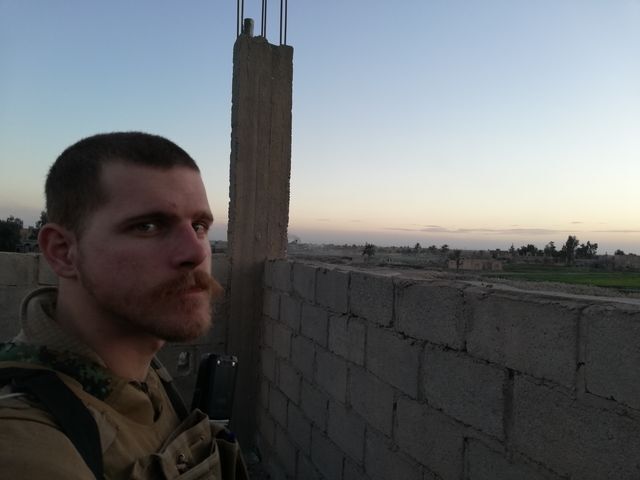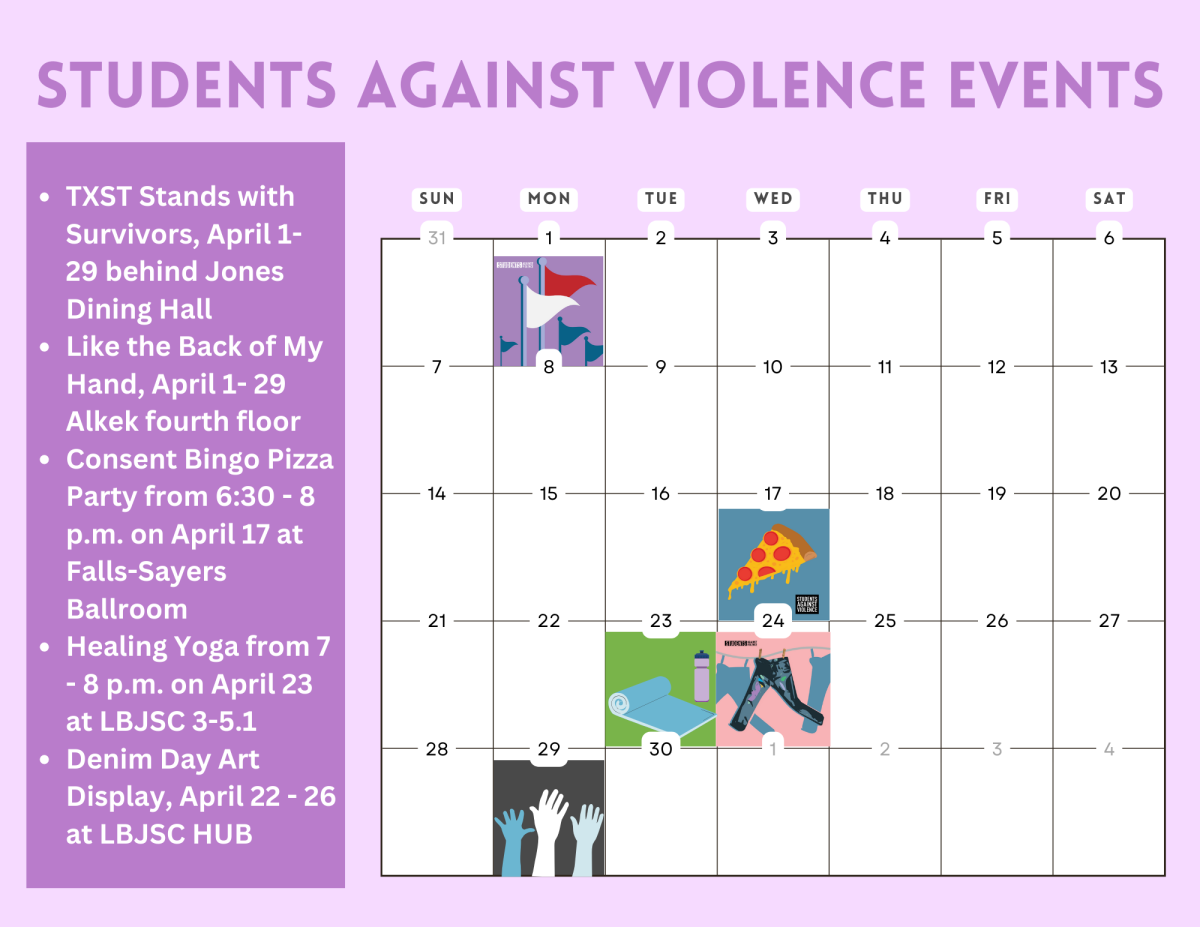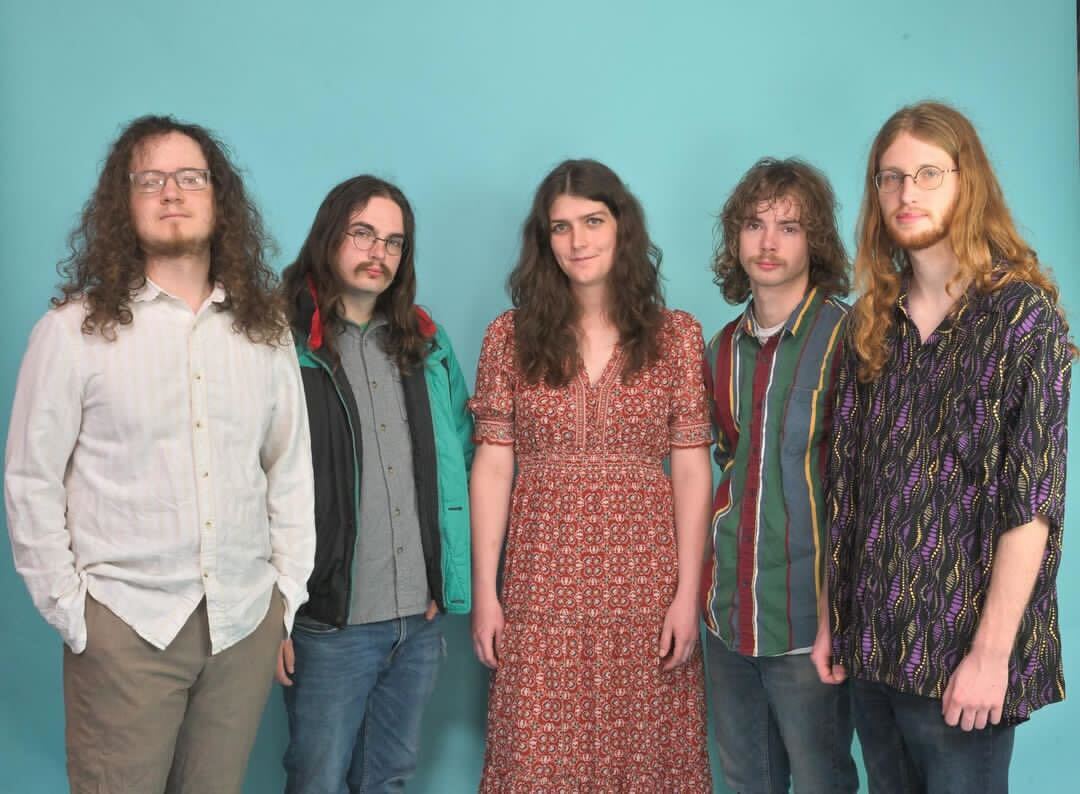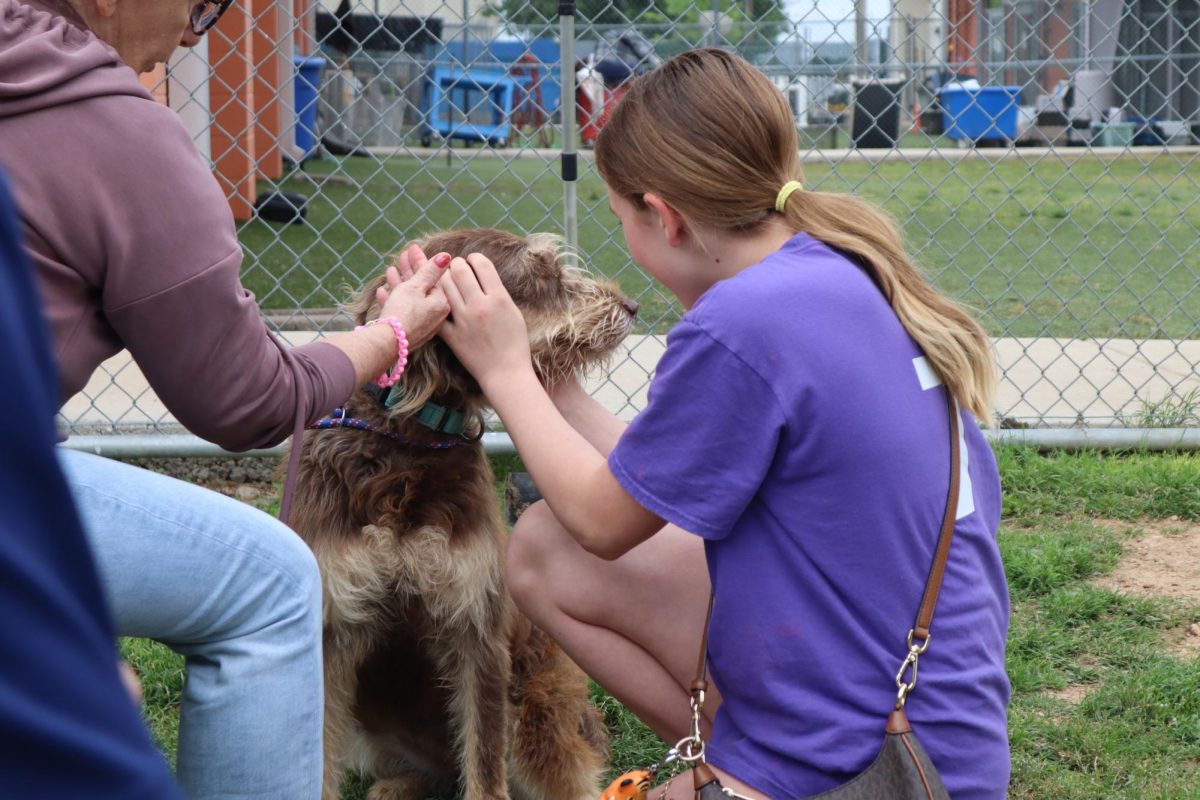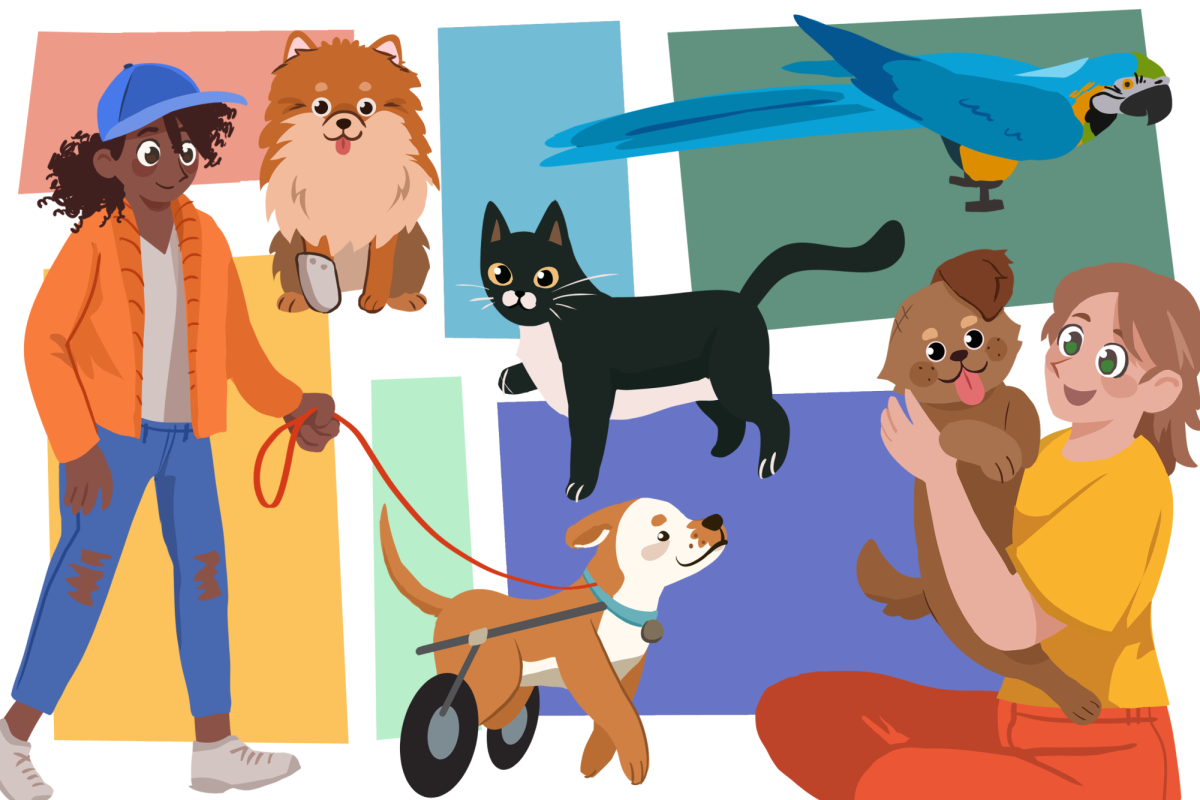Six men, strangers only months before, sat cramped in a Toyota Hilux as it rolled under the Syrian sun. Gravel crunched under the tires and Taylor Swift songs echoed off the dashboard. A motorcyclist from Texas passed around a bag of nuts and bananas. Laughter and small talk ensued. Rifles sat on the floorboards.
Warren Stoddard, Texas State alumnus, graduated in 2018 with a creative writing degree. Now, he sits in front of me outside of Mochas and Javas. His eyes gleam as he recalls one of his most memorable experiences from Syria; not a moment of war, a moment of peace.
He leans against the window we sit beside, clad in a simple T-shirt and jeans. His left arm is adorned with a Hemingway tattoo: the cover design of “The Sun Also Rises.”
Stoddard returned to Texas only days ago. For the past seven months, he has been a volunteer in the Kurdish militia fighting against ISIS.
Stoddard grew up in a military family. On his fingers, he lists all the uncles and cousins that have served. His father, a marine veteran, was killed when Stoddard was 3 years old.
Stoddard knew his calling was to serve, just as his family had. He enlisted in the Marine Corps when he was 18 years old, but had to leave due to knee problems. Then, ear issues kept him from Texas State’s ROTC.
In 2016, Stoddard began following the war in Syria. He completed college with the goal in mind to join the Kurdish militia upon graduation, which is a mix of Western volunteers and Kurds fighting to reclaim Syria from militant control. The U.S. military provides support and protection for these militias.
Stoddard discovered the Kurdish People’s Protection Units, the U.S.’ most trusted ally, on Facebook. He sent them a message but received no reply.
He emailed the group again January 2018. They emailed back with instructions and a reading list that encompassed their ideology: books on ecology, feminism and democratic federalism.
In March 2018, Stoddard bought a one-way ticket to Sulaimaniyah, Iraq.
Stoddard said his friends were impressed by his willingness to leave everything behind and take up arms. His family, on the other hand, had a difficult time accepting his decision.
Stoddard said he was visiting his mother and stepfather for dinner when he happened upon a surprise. On the kitchen island was an elaborate display of Stoddard’s childhood photos.
The pictures ranged from when Stoddard was 3 to 23 years old.
His mother walked around the island, pulled out a kitchen knife and held it out to him.
“If you go, you might as well plunge this into my heart,” she said.
Regardless of her protest, Stoddard pursued the voice in his head telling him to fight.
“I was super calm about leaving; when I left here, I was fine,” Stoddard said. “I was more worried about coming back home than I was about leaving.”
He arrived at the Sulaimaniyah airport and a contact took him to a safe house. He stayed there overnight sipping tea, smoking cigarettes and watching movies.
He then crossed the border to Syria to join the academy where they underwent military training and language classes. His class originally consisted of three men but grew over time.
Stoddard said it was often quiet and still at the academy. They spent most of their time gardening and planting trees.
Once it was time to deploy, a list of names that divided the volunteers into squads was pulled out. If your name was read, you were shipped to the frontline.
“When he read off my name, I started convulsing almost,” Stoddard said. “It was a mixture of fear and adrenaline. Just excitement.”
His squad consisted of six men. Any social shyness was quickly overcome. Each person knew they were there for the same reason. They all knew their lives were on the line. There was no time or room for façades.
Stoddard’s humor and passion take me by surprise. He recalls memories with exact detail, a true storyteller at heart. He is most animated when recounting what he describes as his squad’s “crescendo” training operation before battle.
On Christmas Eve, Stoddard’s squad faced their crucible moment before they were sent to the frontline.
At 4:30 a.m., the men left the base and traveled to the woods along a river. They snacked on cold spam under pouring rain in thirty-degree weather.
After six hours, the man in charge instructed the squad to scout nearby hills, figure out the coordinates and call in an airstrike. However, in order to get to the hills, they had to cross a raging river.
A squad member from Kansas decided he would demonstrate to the others how to tactfully cross the river.
The squad member stepped into the cold water, instructing them as he trudged through. After walking a few feet, he fell into silt and dropped down, chest-deep. He kept walking, protecting his gun from the water.
“It’s always important to keep your rifle above your he-“
He dropped under the water before he could finish his sentence.
The squad burst out laughing. When the squad member popped back up and Stoddard saw his shocked face, Stoddard dropped his machine gun and backpack and dove into the freezing water.
Stoddard fished him out and hauled the man back to the bank.
Back on land, the squad realized they needed to go back for the rifle they had left in the river. They searched for 20 minutes to no avail.
They arose from the freezing water with blue chests. They stripped down and wrapped up in space blankets, beginning the three-mile walk back to the base.
Stoddard’s friend from New York, Rasheed, pulled out Mars Bars as they hiked back in the rain.
Once they were back at base, they took all the heaters from the storage rooms and placed them in the common room.
There, wrapped in blankets in a circle of space heaters, they watched Christmas movies.
Once on the frontline, Stoddard’s squad began to advance behind coalition airstrikes. They held tight during the day and moved forward at night.
It was during a dust storm that Stoddard saw his first and last moment of active combat. Dust and debris kicked up around lunchtime. Mortars began going off, but Stoddard was too exhausted to fight. He took cover and fell asleep.
He was awoken by a mortar hitting the wall beside him. He received word that sniper fire, as well as machine gun and small arm fire had began and was instructed to keep his head down. The Arab men he was with decided they should head for the roof.
Stoddard, eager to fight, grabbed his rifle and ran to the rooftop. Looking down, he fired at a couple of men running through rubble. Suddenly, the wall exploded. The mortar had missed his face by only a couple of inches.
He got up in a panic. He ran limp to the stairwell. He patted himself down, realizing his leg was numb. He assumed it was solely rocks that hit him and continued down the stairs. He paused again. He knew something was wrong. When he looked down at his shoe, he realized it was drenched in blood.
An Arab fighter threw Stoddard over his shoulder and hauled him to safety.
It turns out the bullet had hit the wall and shattered into different pieces. He was wounded in the armpit, leg and foot. The fragments even took out his rifle.
He returned to the U.S. after two weeks due to his injuries. He received medical attention in Alabama for a month before coming back to Texas.
He arrived home with more than a piece of metal lodged into his leg. He said his outlook on his country changed drastically.
Stoddard said the notion of capitalism has never sat well with him. After returning from Syria, he found himself resenting capitalism even more. He said it is nearly impossible to live in the U.S. without a constant income, but in Syria, one can exist without any money at all.
“Everything they say is the ‘American dream’ and what makes capitalism great is happening in this quasi-socialist-capitalist enclave of Syria,” Stoddard said.
Stoddard said his whole life he was taught socialism and communism were evil. However, he found more peace in Syria than he has his entire life in the U.S.
“(In the U.S.) it is such a materialistic existence, and you kind of block out everything else around you,” Stoddard said. “People live their lives on their smartphones and post all this shit that looks like they’re living this huge life, but they’re just missing everything that’s really happening. Americans in general just miss everything that’s happening.”
Stoddard said he wants the U.S. to recognize what is occurring in Syria. He hopes sharing his story will help others learn more about the war.
“What happens over there is important for more reasons than our gas prices,” Stoddard said. “The rest of the world matters as much as we do.”
Stoddard said it’s our individuality that unites humanity. He brings up a moment from Tolstoy’s novel “War and Peace,” where men are about to be lined up and shot. He said each one of them held their lives at the utmost importance above all else.
“Everybody’s life is the most important life in the world, and everyone lives like their life is the most important in the world,” Stoddard said. “Humanity is humanity. Recognizing that brings the world closer together.”
Stoddard said the Syrian Revolution is no different from the American, French or Russian Revolutions.
“They’re all just people fighting for freedom,” Stoddard said.
When I asked Stoddard about his plans for the future, he glanced at his motorcycle in the parking lot.
“My Harley’s clutch is acting a little weird so I’m planning to fix that,” Stoddard said.
Next month, he will be attending a motorcycle show in North Carolina.
“Between now and then, I guess I have to figure out what to do with my life,” Stoddard said. “I mean, I have a creative writing degree.”

